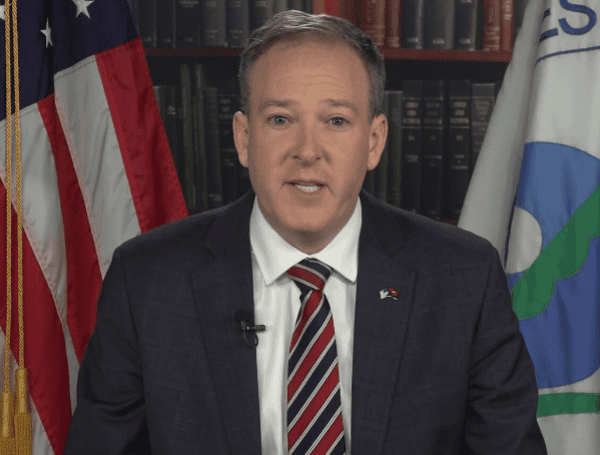U.S. Environmental Protection Agency (EPA) Administrator Lee Zeldin today announced a comprehensive strategy to combat the pervasive threat of Per- and Polyfluoroalkyl Substances (PFAS) contamination, outlining a series of significant actions aimed at protecting American communities.
In a move signaling a renewed commitment to environmental protection, Administrator Zeldin unveiled a multi-pronged approach under the “Powering the Great American Comeback” initiative, focusing on clean water and accountability.
The plan includes the designation of an agency lead for PFAS, the development of effluent limitations guidelines (ELGs) to curb PFAS discharges into drinking water systems, and a push for a clear liability framework that holds polluters responsible.
READ: Schumer Fears Trump Will “Cave” To Putin On Ukraine, Undermine Western Alliances
“I have long been concerned about PFAS and the efforts to help states and communities dealing with legacy contamination in their backyards,” said Administrator Zeldin. “With today’s announcement, we are tackling PFAS from all of EPA’s program offices, advancing research and testing, stopping PFAS from getting into drinking water systems, holding polluters accountable, and providing certainty for passive receivers. This is just a start of the work we will do on PFAS to ensure Americans have the cleanest air, land, and water.”
The EPA’s strategy is built on three core principles: strengthening the science, fulfilling statutory obligations and enhancing communication, and building partnerships.
Key Actions Include:
- Strengthening the Science:
- Appointing an agency lead to coordinate PFAS efforts.
- Implementing a PFAS testing strategy under the Toxic Substances Control Act (TSCA).
- Expanding air-related PFAS information collection and measurement.
- Providing annual updates to PFAS Destruction and Disposal Guidance.
- Ramping up development of testing methods.
- Fulfilling Statutory Obligations and Enhancing Communication:
- Developing ELGs for PFAS manufacturers and metal finishers.
- Addressing compliance challenges related to national primary drinking water regulations.
- Utilizing RCRA authorities to address PFAS releases from manufacturing.
- Adding PFAS to the Toxic Release Inventory (TRI).
- Enforcing Clean Water Act and TSCA limitations.
- Utilizing Safe Drinking Water Act authority to address immediate endangerment.
- Working with Congress and Industry to create a “Polluter Pays” liability framework.
- Building Partnerships:
- Advancing remediation and cleanup efforts in impacted areas.
- Collaborating with states on risk assessments.
- Finalizing the biosolids risk assessment.
- Providing enforcement assistance to states and tribes.
- Resourcing investigations into violations.
READ: UPDATE: One Dead, Hit-And-Run Boat Identified In Clearwater Ferry Crash
Zeldin emphasized his long-standing commitment to addressing PFAS contamination, citing his work in Congress as a founding member of the PFAS Congressional Taskforce and his support for the PFAS Action Act. He highlighted the importance of protecting communities from contaminated drinking water and ensuring that polluters, not taxpayers, bear the financial burden of cleanup.
The EPA’s announcement follows previous efforts, including the 2018 National Leadership Summit on PFAS and the 2019 PFAS Action Plan, demonstrating a sustained focus on this critical environmental issue. The agency pledges to continue its work across program offices, providing ongoing support to communities affected by PFAS contamination.
Please make a small donation to the Tampa Free Press to help sustain independent journalism. Your contribution enables us to continue delivering high-quality, local, and national news coverage.
Connect with us: Follow the Tampa Free Press on Facebook and Twitter for breaking news and updates.
Sign up: Subscribe to our free newsletter for a curated selection of top stories delivered straight to your inbox.
